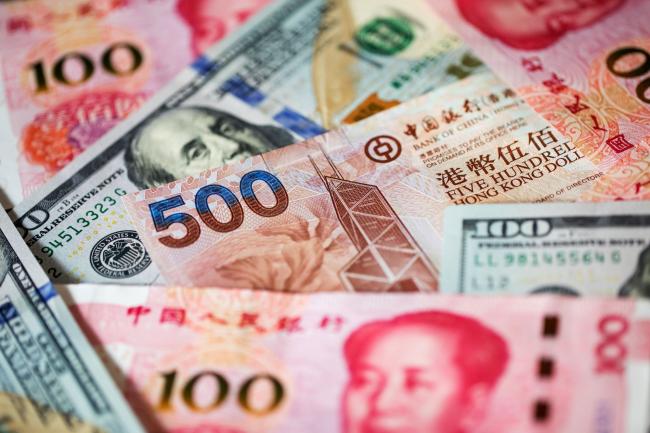(Bloomberg) -- Hong Kong’s government is expected to select an insider to run the city’s monetary authority, as the crisis gripping the city highlights the institution’s role as the protector of the all-important peg to the dollar.
Norman Chan, chief executive of the Hong Kong Monetary Authority, will retire on Oct. 1 at the end of his second five-year term. Financial Secretary Paul Chan is chairing a panel to identify the central banker’s successor. Reports in local media suggest the current deputies are the likeliest candidates for the top job.
The system that pegs the Hong Kong dollar to the greenback at a rate of about HK$7.80 has been in place since 1983, with the HKMA intervening when the trading band is tested. That pillar of stability is all the more vital now as protests against a proposed extradition bill form the most serious political crisis since the return to Chinese rule.
“Promoting someone internally would be the most reasonable move,” said Stephen Chiu, a strategist at Bloomberg Intelligence. “A sense of stability is important as Hong Kong is facing civil unrest, while China is seeing pressure on the economy and is dealing with the U.S.”
A media representative for the financial secretary declined to comment.
The new HKMA chief is set to be among the world’s best-paid central bankers, despite having little role in setting interest rates. Formal tasks include formulating banking policies and managing the city’s reserve fund. Yet it’s the currency peg that is the highest priority, with chief executives representing the city’s iron commitment to maintaining the level. Speculative threats against it have increased this year.
Here’s a rundown of the three current deputies:
Eddie Yue
Yue, 54, is the most experienced deputy chief executive among the three. He started his career as an administrative officer in the Hong Kong government 33 years ago, joining the HKMA in 1993 at its establishment. He was promoted to his current position in 2007.
Yue oversees the city’s HK$4 trillion ($522 billion) Exchange Fund, which protects the stability of Hong Kong’s monetary and financial systems. The government bought shares through the fund in 1998 in an unprecedented purchasing spree aimed at hurting speculators, who were betting against the local stock market and the currency’s peg to the dollar.
A previous role as administrative assistant to former Chief Executive Joseph Yam may help his candidacy: Yam, the founding HKMA chief, is part of the search committee for the next head of the organization.
Arthur Yuen
With a focus on banking policy and supervision, Yuen is in charge of regulating activities of some of the world’s biggest lenders in the Asian financial hub. He’s the man overseeing the new challenge of developing digital-only banks in Hong Kong’s staid financial sector.
Yuen, 54, joined the HKMA in 1996. He was made head of banking supervision in 200O and appointed to his current position in 2010.
Howard Lee
After being promoted to deputy chief executive last year, Lee is seen as a rising star at the HKMA. Lee, 53, is responsible for monetary management, financial stability surveillance and financial infrastructure including payment systems, as well as overseeing financial technology development.
His major tasks include maintaining the city’s currency stability within the exchange fund framework. Before joining the HKMA in 2009, Lee worked for the Hong Kong government with responsibilities for policy formulation, regulatory issues, and administration.
